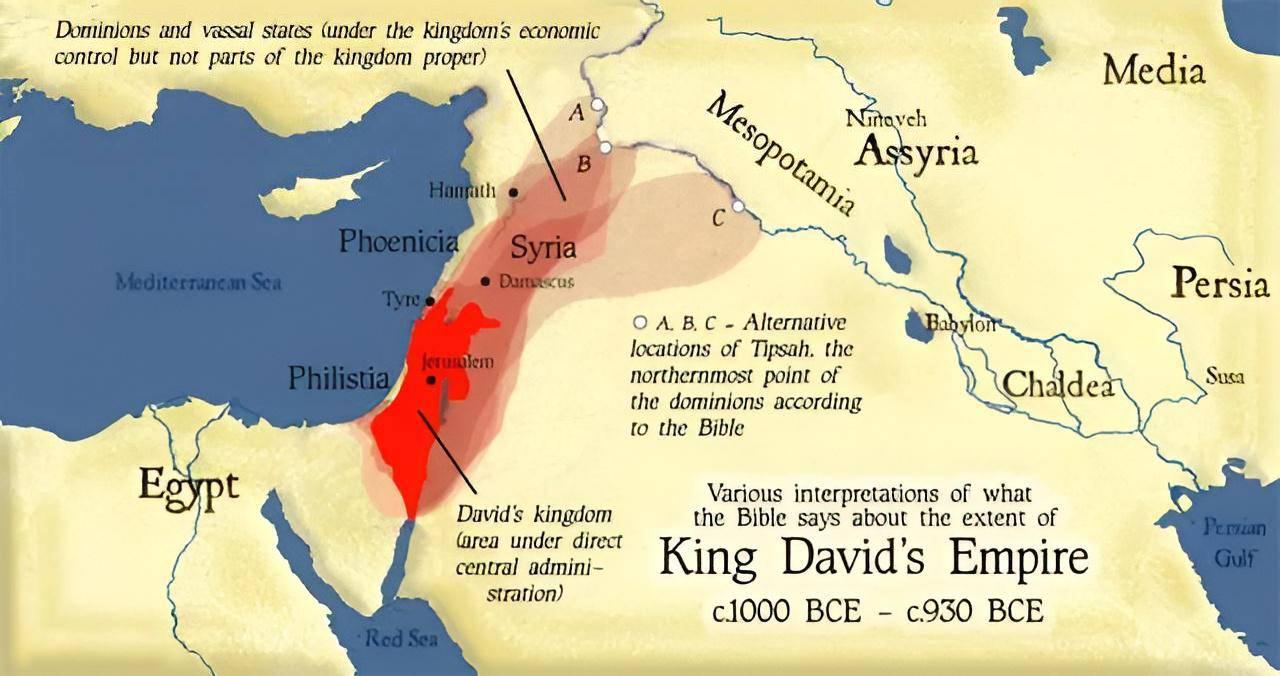|
Lorsque le monde a vu qu’Israël a barbarement tué plus de 500 personnes lors du bombardement de l’hôpital Al-Ahli à Gaza, une nouvelle prise de conscience a probablement eu lieu.
|
When the world saw that Israel barbarically killed more than 500 people in the bombing of Al-Ahli hospital in Gaza , a new awareness was probably reached.
|
|
L’opinion publique mondiale, qui s’est abreuvée pendant des années aux sources contaminées de la grande presse fermement aux mains du lobby sioniste, semble avoir acquis un nouveau niveau de connaissance du conflit israélo-palestinien.
|
World public opinion, which for years has been drinking from the contaminated sources of the mainstream press firmly in the hands of the Zionist lobby, seems to have acquired a new level of knowledge regarding the Israeli-Palestinian conflict.
|
|
Il ne s’agit pas d’une guerre contre le Hamas. Le Hamas n’est même pas touché par Tel Aviv qui se garde bien de traquer les militants du groupe islamiste.
|
This is not a war against Hamas. Hamas is not even touched by Tel Aviv which is careful not to track down the militants of the Islamist group.
|
|
Les islamistes sont au service d’Israël. Ils servent à avoir ce formidable prétexte pour pouvoir bombarder Gaza et tuer autant de civils que possible.
|
Islamists serve Israel. They serve to have that formidable pretext to be able to bomb Gaza and kill as many civilians as possible.
|
|
En fait, le gouvernement de M. Netanyahou ne veut trouver aucune voie vers une coexistence pacifique avec ses voisins palestiniens.
|
In fact, Netanyahu’s government does not want to find any path to peaceful coexistence with its Palestinian neighbors.
|
|
Ils ne sont que des bêtes, ou des goyim si l’on veut utiliser un certain langage talmudique, qu’il faut éliminer impunément car ces “sous-hommes” sont sur la voie d’un objectif plus grand.
|
They are nothing more than beasts, or goyim if we wanted to use a certain Talmudic language, who must be eliminated with impunity as such “subhumans” are on the path to achieving a greater goal.
|
|
Il s’agit d’élargir les frontières actuelles d’Israël pour les ramener à celles du passé racontées dans la Sainte Bible, lorsque l’ancienne nation israélite s’étendait bien au-delà de son territoire actuel pour toucher les territoires de la Mésopotamie, habités aujourd’hui en grande partie par l’Irak et l’Arabie saoudite.
|
That of expanding the current borders of Israel to bring them back to those of the past narrated in the Holy Bible when the then ancient Israelite nation extended well beyond its current territory to touch the territories of Mesopotamia, inhabited today largely by Iraq and ‘Saudi Arabia.
|
|
Derrière ce plan d’expansion se cache une vision de l’impérialisme sioniste fou qui ne peut être mise en œuvre que par l’extermination massive des Palestiniens qui “persistent” à habiter les terres qu’ils peuplent depuis de nombreux siècles.
|
There is a vision of crazy Zionist imperialism behind this expansionist plan which cannot be implemented except through the mass extermination of the Palestinians who still “persist” in inhabiting the lands they have peopled for many centuries.
|
|
Des terres dans lesquelles, après 1948, ils sont soudainement devenus des étrangers lorsque la naissance de l’État juif a entraîné l’une des plus grandes tragédies modernes pour ce peuple oublié et opprimé.
|
Lands in which after 1948 they suddenly became foreigners when the birth of the Jewish state brought about one of the greatest modern tragedies for this forgotten and oppressed people.
|
|
Les Palestiniens n’ont certainement pas derrière eux le capital de banques et d’institutions financières telles que Goldman Sachs ou JP Morgan et ils n’ont certainement pas derrière eux l’appareil médiatique international composé de médias tels que le New York Times et CNN, qui s’efforcent aujourd’hui de dissimuler les crimes de l’État juif.
|
The Palestinians certainly don’t have behind them the capital of banks and financial institutions such as Goldman Sachs or JP Morgan, and they certainly don’t have behind them the international media apparatus made up of outlets such as the New York Times and CNN, which today strive to conceal the crimes of the Jewish state.
|
|
Cependant, pour bien comprendre le conflit et le sang qui coule ces derniers jours, il faut d’abord revenir en arrière, à la genèse de la création de l’État juif et à la naissance du mouvement sioniste.
|
However, to fully understand the conflict and the bloodshed of recent days, we must first go back to the genesis of the creation of the Jewish state and the birth of the Zionist movement.
|
|
La genèse du sionisme
|
The genesis of Zionism
|
|
Lorsque, au début du siècle dernier, le père idéologique du sionisme, Theodor Herzl, a commencé à théoriser sa doctrine qui prévoyait le retour des Juifs en Terre sainte, les Juifs d’Europe se sont montrés très froids.
|
When, at the beginning of the last century, the ideological father of Zionism, Theodor Herzl, began to theorize his doctrine, which foresaw the return of the Jews to the Holy Land, the Jews of Europe turned a cold shoulder.
|
|
Les Juifs se sentaient à l’aise dans les nations où ils avaient vécu pendant des siècles et ne ressentaient pas le besoin de s’installer dans les déserts arides et hostiles de la Palestine.
|
The Jews were comfortable in the nations in which they had lived for centuries and did not feel any particular need to move to the arid and unwelcoming deserts of Palestine.
|
|
Le sentiment de distance et de scepticisme à l’égard du projet d’État juif a été parfaitement exprimé par un homme politique britannique d’origine juive, Edwin Montagu, qui a clairement affirmé que la naissance d’Israël créerait chez les Juifs britanniques un sentiment d’aliénation à l’égard de la Grande-Bretagne.1
|
The feeling of distance and skepticism towards the project of the Jewish state was perfectly expressed by a British politician of Jewish origins, Edwin Montagu, who clearly stated that the birth of Israel would create in British Jews a feeling of alienation towards Great Britain.1
|
|
C’est la raison qui a conduit Montagu à s’opposer à la tristement célèbre déclaration Balfour de 1917, dans laquelle le gouvernement britannique écrivait à Lord Rothschild pour l’assurer que la Palestine deviendrait dorénavant le lieu de prédilection de l’immigration juive.
|
This was the reason that led Montagu to oppose the infamous Balfour Declaration of 1917 in which the British government wrote to Lord Rothschild and reassured him that from then on Palestine would become the favorite place of Jewish immigration.
|
|
En ce sens, la Première Guerre mondiale peut être considérée comme l’événement tout à fait indispensable qui met en marche le mécanisme qui pose la première pierre de la construction d’Israël.
|
In this sense, the First World War can be seen as the all-important event that sets in motion the mechanism that lays the foundation stone for the construction of Israel.
|
|
La désintégration de l’Empire ottoman et le passage du mandat de Palestine des mains des sultans turcs à celles du gouvernement britannique est cet élément historique qui permet au sionisme de franchir une étape définitive dans son projet.
|
The disintegration of the Ottoman Empire and the transfer of the Mandate of Palestine from the hands of the Turkish sultans to those of the British government was the historical element that enabled Zionism to take a definitive step forward in its project.
|
|
Et la Première Guerre mondiale joue à son tour un rôle essentiel dans la réalisation de ce transfert. En effet, si l’on regarde ce qui s’est passé après la Première et la Seconde Guerre mondiale, on constate qu’elles ont toutes deux servi à atteindre des objectifs très précis et clairement préétablis.
|
And the First World War in turn plays an essential role in enabling this transfer. In fact, if we look at what happened after the First and Second World Wars, we see that both served to achieve very precise and clearly pre-established goals.
|
|
Celles qui ont vu la création d’institutions supranationales comme la Société des Nations en 1920 et l’ONU en 1945, et celles qui ont permis aux Juifs d’émigrer souvent de force en Palestine, comme ce fut le cas sous le nazisme qui stipulait des accords avec le mouvement sioniste, et de pouvoir ensuite proclamer la naissance de l’État d’Israël.
|
Those that saw the creation of supranational institutions such as the League of Nations in 1920 and the UN in 1945, and those that enabled Jews to emigrate, often forcibly, to Palestine, as was the case under Nazism, which stipulated agreements with the Zionist movement, and then to proclaim the birth of the State of Israel.
|
|
Rothschild est donc cette famille de banquiers ashkénazes qui a eu à cœur la naissance de cet État et c’est le capital de cette dynastie controversée qui a permis à Israël de voir le jour au milieu du XXe siècle.
|
Rothschild is the family of Ashkenazi bankers who had the birth of this state at heart, and it was the capital of this controversial dynasty that enabled Israel to come into being in the middle of the 20th century.
|
|
Cependant, la vision qui anime la naissance de cet État n’a pas grand-chose à voir avec le bien des Juifs ordinaires, souvent utilisés comme chair à canon par le sionisme qui les a laissés mourir dans les camps de concentration, et a beaucoup plus à voir avec un plan d’impérialisme et de domination du monde entier.
|
However, the vision driving the birth of this state has little to do with the good of ordinary Jews, often used as cannon fodder by Zionism which left them to die in concentration camps, and much more to do with a plan for imperialism and world domination.
|
|
L’un des pères fondateurs d’Israël, David Ben Gourion, a très bien expliqué le but ultime qui anime ce plan impérialiste. Dans une interview accordée au magazine américain Life en 1962, il s’est arrêté pour décrire l’avenir qui attendait le monde.
|
One of Israel’s founding fathers, David Ben-Gurion, explained very well the ultimate goal driving this imperialist plan. In an interview with Life magazine in 1962, he paused to describe the future that awaited the world.
|
|
Pour l’homme politique israélien, “à Jérusalem, les Nations Unies érigeront un sanctuaire des prophètes2 au service de l’union fédérée de tous les continents, qui sera le siège de la Cour Suprême de l’Humanité pour résoudre tous les différends entre les continents fédérés, comme l’a prophétisé Isaïe”.
|
For the Israeli politician, “in Jerusalem, the United Nations will erect a shrine of the prophets2 in the service of the federated union of all continents, which will be the seat of the Supreme Court of Humanity to resolve all disputes between the federated continents, as prophesied by Isaiah”.
|
|
Ben Gourion n’a fait que décrire la vision du nouvel ordre mondial dans lequel, une fois achevé, Israël, dans ses anciennes frontières d’origine, assume un rôle de leader absolu parmi les nations.
|
Ben Gurion merely described the vision of a new world order in which, once completed, Israel, within its ancient original borders, assumes an absolute leadership role among the nations.
|
|
C’est cette vision qui anime le parti de droite Likoud de Netanyahou, fortement inspiré par le sionisme messianique d’une secte influente et très puissante dont nous avons parlé à plusieurs reprises, le Chabad Lubavitch.
|
This is the vision that drives Netanyahu’s right-wing Likud party which is strongly inspired by the messianic Zionism of an influential and very powerful sect that we have spoken about on several occasions, the Chabad Lubavitch.
|
|
Au terme de ce plan impérialiste, l’humanité se retrouve opprimée par ce gouvernement mondial qui, selon le Chabad, sera gouverné par un personnage appelé moshiach , qui n’est évidemment pas le Messie chrétien incarné en Jésus, mais un personnage politique autoritaire doté d’un pouvoir absolu et sans précédent.
|
At the culmination of this imperialist plan, mankind finds itself oppressed by this world government which, according to the Chabad, will be ruled by a figure called moshiach, who is obviously not the Christian Messiah incarnate in Jesus, but an authoritarian political figure endowed with absolute and unprecedented power.
|
|
Cela nous amène à l’extermination actuelle de Gaza. Nous assistons à ce massacre parce que le gouvernement israélien actuel est imprégné de cette vision démente et est prêt à tout pour la mettre en œuvre, même si sa réalisation semble encore lointaine.
|
This brings us to the current-day extermination of Gaza. We are witnessing this massacre because the present Israeli government is imbued with this demented vision and is prepared to do anything to implement it, even if its realization still seems a long way off.
|
|
On peut dire que le monde semble très éloigné d’une centralisation du pouvoir au niveau mondial, compte tenu également de la montée et du retour des États nationaux sur la scène internationale.
|
It’s fair to say that the world seems a long way from a global centralization of power, given the rise and return of national states on the international stage.
|
|
Les États-Unis, bras armé historique du sionisme, se trouvent dans une phase historique de désengagement de leur empire et semblent loin de vouloir s’engager à sauver leur ancien “allié”.
|
The United States, the long-standing armed wing of Zionism, is in a historical phase of disengagement from its empire and seems far from willing to commit to saving its old “ally”.
|
|
Pour mieux comprendre la situation dans les forces armées américaines, il suffit de citer la lettre du général Daniel Hokanson dans laquelle l’officier supérieur déclare clairement que dans les rangs de l’armée américaine, il y a beaucoup d’hostilité à l’égard d’Israël et de ses guerres.
|
To better understand the situation in the U.S. armed forces, we need only quote General Daniel Hokanson’s letter, in which the senior officer clearly states that within the ranks of the U.S. military, there is a great deal of hostility towards Israel and its wars.
|
|
Et le général semble identifier Donald Trump comme le “coupable” de cette situation, ayant lancé plusieurs torpilles [métaphoriques] contre Benjamin Netanyahou.
|
And the general seems to identify Donald Trump as the “culprit” of this situation, having fired several [metaphorical] torpedoes at Benjamin Netanyahu.
|
Les contrastes entre le sionisme messianique et le sionisme progressiste
|
The contrasts between messianic Zionism and progressive Zionism
|
|
Il existe également une autre opposition à Israël à l’heure actuelle, incarnée par des forces progressistes et laïques au sein du monde juif.
|
There is also another form of opposition to Israel today, embodied by progressive and secular forces within the Jewish world.
|
|
Cela nous ramène à une question que nous avons déjà abordée à d’autres occasions. Il existe une sorte de “conflit” entre deux âmes du monde juif.
|
This brings us back to a question we’ve addressed on other occasions. There is a kind of “conflict” between two souls in the Jewish world.
|
|
Il existe une âme du judaïsme qui place Israël et son rôle de primauté parmi les nations au centre de l’ordre du jour, et cette âme peut être bien représentée par la philosophie politique de Yoram Hazoni, qui a écrit un essai il y a quelques années sur les vertus du nationalisme.
|
There is a soul of Judaism that places Israel and its role of primacy among the nations at the center of the agenda, and this soul can be well represented by the political philosophy of Yoram Hazoni, who wrote an essay a few years ago on the virtues of nationalism.
|
|
Hazoni est également président de l’Institut Herzl et semble fortement influencé par les idéaux du sionisme messianique.
|
Hazoni is also president of the Herzl Institute and seems strongly influenced by the ideals of messianic Zionism.
|
|
Il existe cependant une autre âme, d’inspiration plus internationaliste, qui trouve sa meilleure expression dans le sionisme progressiste de l’Anti Defamation League et de George Soros, juif d’origine hongroise.
|
There is, however, another soul, more internationalist in inspiration, which finds its best expression in the progressive Zionism of the Anti Defamation League and George Soros, a Jew of Hungarian origin.
|
|
George Soros ne se déclare pas ennemi d’Israël et ne nie nullement la “nécessité” de l’existence de cet Etat. Cependant, sa philosophie politique n’attribue aucun rôle primordial aux nations puisque dans le mondialisme qu’il prône, les cercles et institutions supranationaux tels que le FMI, la Banque mondiale, l’ONU et l’ensemble du réseau des ONG dominent la scène.
|
George Soros does not declare himself an enemy of Israel, nor does he deny the “necessity” of its existence. However, his political philosophy assigns no primordial role to nations, since in the globalism he advocates, supranational circles and institutions such as the IMF, the World Bank, the UN and the entire network of NGOs dominate the scene.
|
|
Dans ce contexte, les religions disparaissent, les frontières sont abolies et l’amour de la patrie est jugé comme un sentiment rétrograde et “raciste”. Dans certaines parties du monde juif libéral-progressiste, l’exaltation du culte des droits de l’homme règne en maître, en fait la nouvelle religion moderne des Lumières.
|
In this context, religions disappear, borders are abolished and love of country is judged as a retrograde and “racist” sentiment. In some parts of the liberal-progressive Jewish world, the exaltation of the cult of human rights reigns supreme, making it the new modern religion of the Enlightenment.
|
|
C’est un monde sans spiritualité, même dans le pire sens du sionisme messianique, mais plutôt un internationalisme progressiste et laïque avant tout..
|
It’s a world without spirituality even in the worst sense of messianic Zionism, but rather a progressive, secular internationalism above all.
|
|
Cette distinction pourrait se résumer à celle qui oppose, d’une part, un juif nationaliste lié à la vision messianique d’Israël, et d’autre part, un juif internationaliste, plus froid à l’égard d’Israël et qui attribue un rôle de leader à d’autres institutions dans le projet mondialiste.
|
This distinction could be summed up as that between, on the one hand, a nationalist Jew linked to Israel’s messianic vision, and on the other, an internationalist Jew, colder towards Israel and who attributes a leadership role to other institutions in the globalist project.
|
|
C’est aussi la raison pour laquelle nous voyons de plus en plus ces deux mondes se heurter en raison de ce qui semble être des différences irréconciliables sur la vision du monde.
|
It’s also the reason why we increasingly see these two worlds colliding over what appear to be irreconcilable differences in worldview.
|
|
En réalité, il s’agit de désaccords fondés non pas tant sur la réalisation d’une fin, mais sur les moyens d’atteindre l’objectif d’un gouvernement mondial.
|
In reality, these are disagreements based not so much on the achievement of an end, but on the means to achieve the goal of world government.
|
|
Le sionisme messianique se préoccupe de l’expansion de l’État d’Israël et de l’accélération du scénario qui conduit à la venue du moshiach et du gouvernement mondial dominé par lui.
|
Messianic Zionism is concerned with the expansion of the State of Israel and the acceleration of the scenario leading to the coming of the moshiach and the world government dominated by him.
|
|
Le sionisme progressiste ne nie certainement pas le droit à l’existence d’Israël, mais il ne considère pas l’expansion de cet État comme une priorité pour provoquer la fin des nations et la naissance d’une gouvernance internationale.
|
Progressive Zionism certainly doesn’t deny Israel’s right to exist, but it doesn’t see the expansion of this state as a priority to bring about the end of nations and the birth of international governance.
|
|
Il s’agit essentiellement d’un conflit sur la question de savoir qui et quoi doit tenir le sceptre du nouvel ordre mondial.
|
Essentially, it’s a conflict over who and what should hold the scepter of the new world order.
|
|
Cette division permet également de comprendre les différentes positions du centre-droit italien et européen, d’une part, et du centre-gauche italien et européen, d’autre part, à l’égard d’Israël.
|
This division also makes it possible to understand the different positions of the Italian and European center-right, on the one hand, and the Italian and European center-left, on the other, with regard to Israel.
|
|
Les deux courants ne sont rien d’autre que le reflet de ces deux puissances. Le centre-droit attribue à Israël un rôle de primauté absolue, tandis que le centre-gauche attribue aux clubs transnationaux le rôle de leader du mondialisme.
|
The two currents are nothing more than a reflection of these two powers. The center-right assigns Israel a role of absolute primacy, while the center-left assigns transnational clubs the role of leader of globalism.
|
|
Malheureusement, nous sommes toujours dans une logique de conflit contrôlé et c’est une caractéristique intrinsèque des démocraties libérales, parfaite pour attribuer le pouvoir aux sociétés et loges maçonniques qui gouvernent ce système en coulisses.
|
Unfortunately, we’re still in a logic of controlled conflict, and this is an intrinsic characteristic of liberal democracies, perfect for assigning power to the Masonic societies and lodges that govern this system behind the scenes.
|
|
À ce stade historique particulier, nous pensons qu’aucun de ces deux objectifs n’est réalisable, car le moment présent et les perspectives d’avenir nous annoncent la fin du monde unipolaire et le retour de la primauté des nations.
|
At this particular historical stage, we believe that neither goal is achievable because the present moment and future prospects tell us of an end to the unipolar world and a return of the primacy of nations.
|
|
Mais ce n’est certainement pas la rationalité et la lucidité qui dominent actuellement le gouvernement de Netanyahou qui, presque en proie à un délire sanglant, bombarde tout et tout le monde, convaincu que sa seule volonté de puissance suffira à faire advenir le Grand Israël.
|
But this is certainly not the rationality and lucidity that currently dominate Netanyahu’s government, which, almost in the grip of a bloody delirium, bombs everything and everyone, convinced that its sheer will to power is enough to bring about the manifestation of Greater Israel.
|
|
A notre avis, le scénario le plus probable est celui d’une aggravation des divisions déjà mentionnées plus haut au sein du judaïsme et qui, pour l’instant, ne semblent pas pouvoir être résolues.
|
In our opinion, the most likely scenario is that of a deepening of the divisions within Judaism previously mentioned, which for the time being seem incapable of resolution.
|
|
La distance séparant la religiosité messianique et la sécularisation progressive des deux partis est trop grande.
|
The distance separating the messianic religiosity and the progressive secularization of the two parties is too great.
|
|
Dans tout cela, il faut encore une fois souligner une autre partie du judaïsme qui peut être considérée comme la plus véridique et la plus authentique et qui est complètement cachée à l’opinion publique italienne et internationale.
|
In all this, we must once again highlight another part of Judaism that can be considered the most truthful and authentic, and which is completely hidden from Italian and international public opinion.
|
|
C’est celle du groupe de juifs haredi de Neturei Karta dirigé par le rabbin Weiss. Pour ces juifs, l’Etat d’Israël désobéit aux commandements de Dieu qui a établi l’interdiction pour les juifs de retourner en Terre Sainte.
|
This is the position of the Neturei Karta group of haredi Jews led by Rabbi Weiss. For these Jews, the State of Israel is disobeying God’s commandments, which forbid Jews to return to the Holy Land.
|
|
Ce sont les juifs que l’on ne voit jamais sur les écrans de télévision et ce sont les juifs les plus proches du christianisme aujourd’hui en raison de leurs positions.
|
These are the Jews you never see on TV screens, and these are the Jews closest to Christianity today because of their positions.
|
|
Et c’est précisément la raison pour laquelle nous n’en entendons jamais parler. Le sionisme messianique, d’une part, et le sionisme progressiste laïc, d’autre part, prétendent représenter et parler au nom de l’ensemble du monde juif, mais ces deux camps sont très loin d’être l’expression du judaïsme originel.
|
And that’s precisely why we never hear about it. Messianic Zionism, on the one hand, and secular progressive Zionism, on the other, claim to represent and speak on behalf of the entire Jewish world, but these two camps are very far from being the expression of original Judaism.
|
|
Il s’agit de deux factions qui n’ont apporté que dévastation et désordre politique et moral partout où elles ont mis les pieds.
|
They are two factions that have brought nothing but devastation and political and moral disorder wherever they have set foot.
|
|
Si le monde chrétien et catholique doit ouvrir un dialogue, c’est précisément avec cette partie du judaïsme que les milieux sionistes veulent étouffer par la force.
|
If the Christian and Catholic world must open a dialogue, it is precisely with that part of Judaism that Zionist circles want to stifle by force.
|
|
Et le monde chrétien et catholique ne peut aujourd’hui dénoncer avec force le génocide dont sont victimes les Palestiniens, victimes d’un projet criminel fou.
|
And today, the Christian and Catholic world can only forcefully denounce the genocide suffered by the Palestinians, victims of an insane criminal project.
|
|
Paradoxalement, par sa fureur génocidaire, Israël a contribué à faire prendre conscience au monde entier que cet État ne se soucie nullement de la sécurité de ses citoyens, considérés comme des pions sacrifiables pour atteindre des objectifs “plus élevés”, ni évidemment de celle de ses voisins, considérés comme des bêtes à exterminer.
|
Paradoxically, through its genocidal fury, Israel has helped make the whole world aware that this state does not care at all about the safety of its citizens, considered expendable pawns to achieve “higher” goals, nor obviously that of its neighbors considered beasts. to be exterminated.
|
|
Cette ambition effrénée et téméraire de dominer tout et tous a définitivement ouvert les yeux de ceux qui les avaient auparavant fermés le plus fermement.
|
This unbridled and reckless ambition to dominate everything and everyone has definitely opened the eyes of those who had previously closed them most firmly.
|
|
Everyone can see that Israel does not want peaceful coexistence with anyone. She wants to dominate and is ready to trample anyone who gets in her way.
|
Tout le monde a pu constater qu’Israël ne veut pas d’une coexistence pacifique avec qui que ce soit. Il veut dominer et est prêt à piétiner tous ceux qui se mettent en travers de son chemin.
|
|
Cependant, ce n’est pas la simple volonté de puissance des Israéliens qui remettra la domination de toute la Palestine au sionisme messianique.
|
However, it is not the Israelis’ sheer will to power that will hand over domination of the whole of Palestine to messianic Zionism.
|
|
There is a reality that goes in the opposite direction, but Tel Aviv stubbornly denies it, which leads us to believe that Israel will pay dearly for its refusal to deal with a world and checks and balances that prevent the realization of its projects.
|
Il y a une réalité qui va dans le sens contraire, mais Tel-Aviv s’obstine à la nier, ce qui nous amène à penser qu’Israël paiera cher son refus de composer avec un monde et des contre-pouvoirs qui empêchent la réalisation de ses projets.
|
|
Même un vieux faucon de l’État profond américain, expression de la dangereuse secte sioniste belliciste des néocons, comme le général David Petraeus, met en garde Israël contre le suicide d’une invasion de Gaza.
|
Even an old hawk of the American Deep State, an expression of the dangerous Zionist warmongering sect of the neocons, like General David Petraeus, warns Israel against the suicide of an invasion of Gaza.
|
|
Le commentaire le plus approprié pour décrire brièvement la situation en Israël semble être celui écrit dans un tweet en hébreu de l’ambassade iranienne en Syrie.
|
The most appropriate comment to briefly describe the situation in Israel seems to be the one written in a Hebrew tweet from the Iranian embassy in Syria.
|
|
Le temps est écoulé.
|
Time’s up.
|





 Palestinians look for survivors after an Israeli airstrike in Rafah refugee camp, southern Gaza Strip on Thursday. Hatem Ali/Associated Press
Palestinians look for survivors after an Israeli airstrike in Rafah refugee camp, southern Gaza Strip on Thursday. Hatem Ali/Associated Press